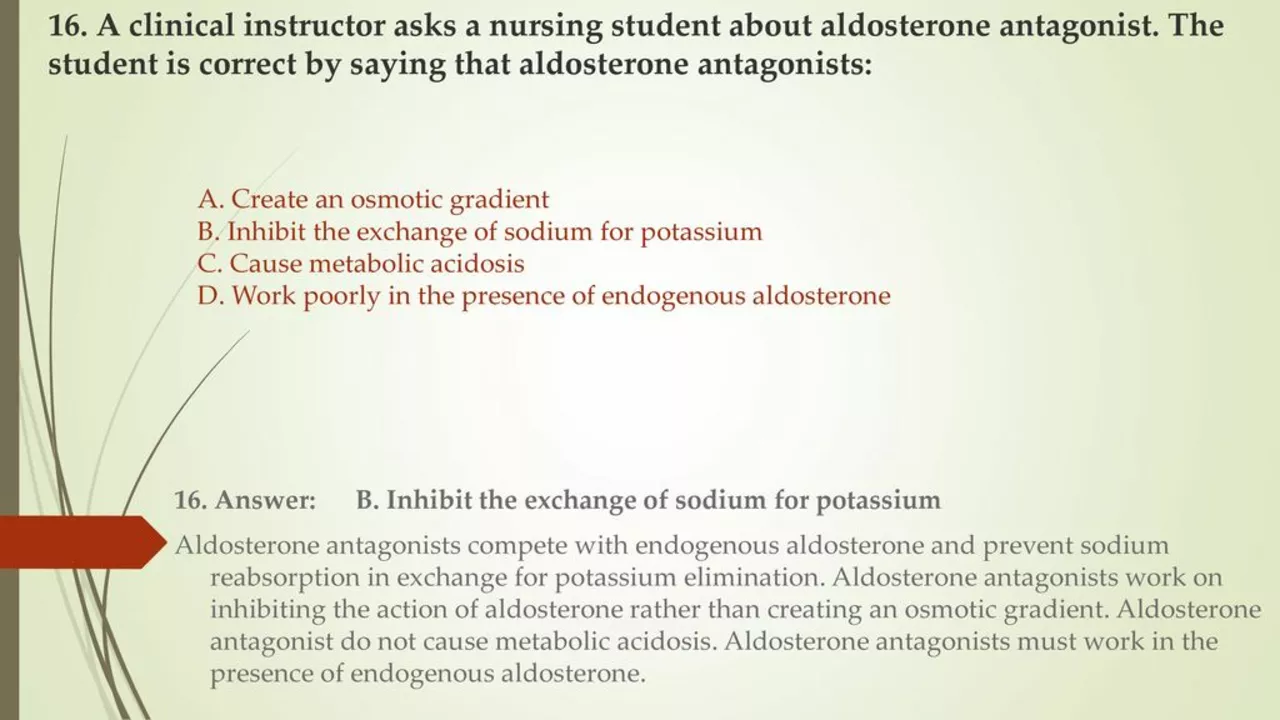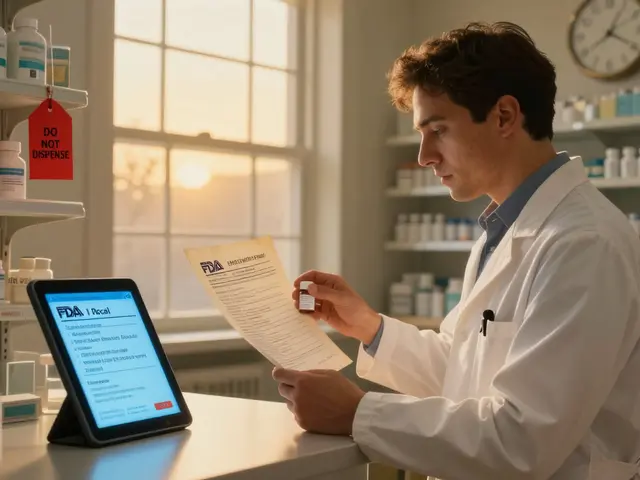Understanding Ovulation Pain
Ovulation pain, also known as mittelschmerz, is a common occurrence for many women. It occurs around the time of ovulation when an ovary releases an egg, usually about halfway through a woman's menstrual cycle. While some women might not experience any discomfort, others may feel mild to severe pain. In this article, we will explore the causes, symptoms, and relief options for ovulation pain.
Causes of Ovulation Pain
There are several factors that can contribute to ovulation pain. One of the most common causes is the stretching of the ovarian follicle before the egg is released. As the follicle grows, it can cause discomfort in the surrounding area. Additionally, when the egg is released, it can cause a small amount of bleeding, which can irritate the abdominal lining and cause pain.
Other factors that may contribute to ovulation pain include hormonal changes and inflammation in the pelvic area. Some women may also have a higher sensitivity to pain, making them more susceptible to experiencing discomfort during ovulation.
Recognizing the Symptoms of Ovulation Pain
Ovulation pain typically occurs around the time of ovulation, usually about 14 days before the start of a woman's next menstrual period. The pain is often felt on one side of the lower abdomen, depending on which ovary is releasing the egg.
Common symptoms of ovulation pain include:
- Sharp or cramping pain in the lower abdomen
- Pain that lasts for a few hours to a couple of days
- Mild to severe discomfort
- Pain that may switch sides from month to month
It's important to note that these symptoms can vary from woman to woman, and some may not experience any pain at all during ovulation.
How to Differentiate Ovulation Pain from Other Abdominal Pain
While ovulation pain is a common occurrence, it's important to rule out other potential causes of abdominal pain. Some conditions that can cause similar symptoms include:
- Appendicitis
- Ectopic pregnancy
- Pelvic inflammatory disease
- Ovarian cysts
If you are unsure whether your pain is due to ovulation or another cause, it's important to consult with a healthcare professional for a proper diagnosis.
Simple Home Remedies for Ovulation Pain Relief
For many women, ovulation pain is manageable and can be relieved with simple home remedies. Some effective methods include:
- Applying a heating pad to the lower abdomen
- Taking over-the-counter pain relievers such as ibuprofen or naproxen
- Engaging in relaxation techniques, such as deep breathing or meditation
- Taking a warm bath to help relax the muscles
It's important to remember that these remedies may not work for everyone, and the effectiveness can vary depending on the individual.
When to Seek Medical Attention for Ovulation Pain
While ovulation pain is generally harmless, it's important to recognize when medical attention may be necessary. You should consult with a healthcare professional if:
- The pain is severe and lasts longer than a few days
- You experience other symptoms, such as fever, nausea, or vomiting
- The pain interferes with your daily activities
- You are unable to find relief with home remedies
Seeking medical attention can help ensure that your pain is not due to a more serious underlying condition and can provide you with the appropriate treatment options.
Preventing Ovulation Pain
While there is no guaranteed way to prevent ovulation pain, some women may find relief by making lifestyle changes or using hormonal contraceptives. For example:
- Maintaining a healthy diet and regular exercise routine can help regulate hormonal fluctuations
- Hormonal contraceptives, such as birth control pills or patches, can help suppress ovulation and reduce associated pain
It's important to discuss these options with a healthcare professional to determine the best course of action for your individual needs.
Understanding the Link Between Ovulation Pain and Fertility
For some women, ovulation pain can serve as a natural indicator of their fertility window. By tracking their menstrual cycle and the occurrence of ovulation pain, they may be able to identify the most fertile days for conception. However, it's important to note that tracking ovulation pain alone may not be a reliable method for all women, and other methods, such as monitoring basal body temperature or using ovulation predictor kits, can provide more accurate results.
Final Thoughts on Ovulation Pain
Ovulation pain is a common and usually harmless experience for many women. Understanding the causes, symptoms, and relief options can help you manage this discomfort more effectively. If you are concerned about your ovulation pain or suspect it may be due to another cause, it's essential to consult with a healthcare professional to ensure proper diagnosis and treatment.







Comments
Oliver Johnson
9 May 2023Ovulation pain? Ha! That's just nature's way of reminding us that the body is a battlefield and we shouldn't trust anyone's "expert" advice.
Taylor Haven
9 May 2023Let me tell you why this whole "ovulation pain" narrative is just another distraction crafted by the global elite to keep women complacent.
First, the pharmaceutical industry has been pumping out painkillers, promising relief while secretly harvesting data on our reproductive cycles.
Second, the so‑called "home remedies" are nothing more than a way to sell you heating pads and herbal teas that line the pockets of big corporations.
Third, the medical community conveniently downplays the severity of the pain, labeling it as "common" so they can avoid liability.
Moreover, every time a woman experiences a sharp cramp, the algorithm feeds that data back into a system that predicts fertility for profit.
Don't be fooled by the polite tone of the article; it's a veil over a massive surveillance operation.
Remember, the same agencies that track your online searches also monitor your menstrual logs.
If you think a warm bath is a solution, think again – they're teaching you to accept discomfort rather than question the source.
It's a pattern repeated across history: institutions create a problem, then sell the fix.
Gender dynamics play into this too, as men wield control over medical research funding, steering priorities toward profit rather than genuine care.
And while they whisper about "natural" options, they hide the fact that many herbal supplements are patented and sold at premium prices.
Ask yourself why the article never mentions the potential side‑effects of NSAIDs, which can be severe for long‑term users.
The omission is intentional, designed to keep you dependent on a cycle of consumption.
In the end, the best relief is awareness – realize that your pain might be a symptom of a larger system exploiting you.
Only then can you truly claim autonomy over your body.
Sireesh Kumar
9 May 2023Look, it's simple chemistry. The follicle swells, the egg bursts out, and the peritoneum gets a tiny pinch of blood – that's why you feel that twinge. Hormones like estrogen and LH spike, and they can make nerves extra sensitive. If you track it with a calendar you’ll see a pattern: usually one side lights up, then the other next month. Some women swear by a warm compress, and honestly it works because it relaxes the smooth muscle. Over‑the‑counter ibuprofen blocks prostaglandins, which are the messengers that tell your body to cramp. Just make sure you don’t overdo it; the liver can get cranky. If the pain lasts more than a couple of days, definitely check with a doc – could be a cyst or something else. Staying hydrated helps, too, because fluids keep the blood thinner and reduce irritation. And yeah, stress can make the whole thing feel worse, so try some breathing exercises. Bottom line: listen to your body, not just the article.
Jonathan Harmeling
9 May 2023While it's important to address discomfort, we must also recognize that not every cramp deserves a medical label. Sometimes the body simply reminds us of its rhythms, and that is a beautiful, natural process. Kindness toward oneself and patience can be more healing than any topical heat.
Ritik Chaurasia
9 May 2023In many cultures, ovulation pain is seen as a sacred signal of fertility, not a problem to be medicated. Yet western medicine tries to erase that reverence, pushing pills instead of respecting tradition. We should fight back and honor the body's wisdom without bowing to pharmaceutical pressure.
Gary Marks
9 May 2023Honestly, the whole "just try a heating pad" advice is a lazy band‑aid, a pop‑culture meme that distracts from the deeper issue of how our bodies are weaponized for profit. The pharmaceutical giants have built an empire on our aches, turning natural processes into revenue streams. If you think a warm bath is the pinnacle of relief, you’re buying into the narrative that we must accept pain as a given, that we should be grateful for tiny comforts while ignoring systemic exploitation. The article’s tone is too polite; it fails to call out how medical research is funded by investors who love a good market for painkillers. Women’s pain is commodified, packaged, and sold back to them as "self‑care" – a euphemism for endless consumption. Real empowerment comes from demanding transparency, pushing for holistic approaches, and refusing to become guinea pigs for endless drug trials. Wake up, question the motives, and reclaim your bodily autonomy.
Steven Young
9 May 2023The pain is real. They hide the truth. Don't trust the pharma.
Kelly Brammer
9 May 2023We must never trivialize women's pain; it is a matter of dignity and respect.
Ben Collins
10 May 2023Wow, heating pads, groundbreaking.